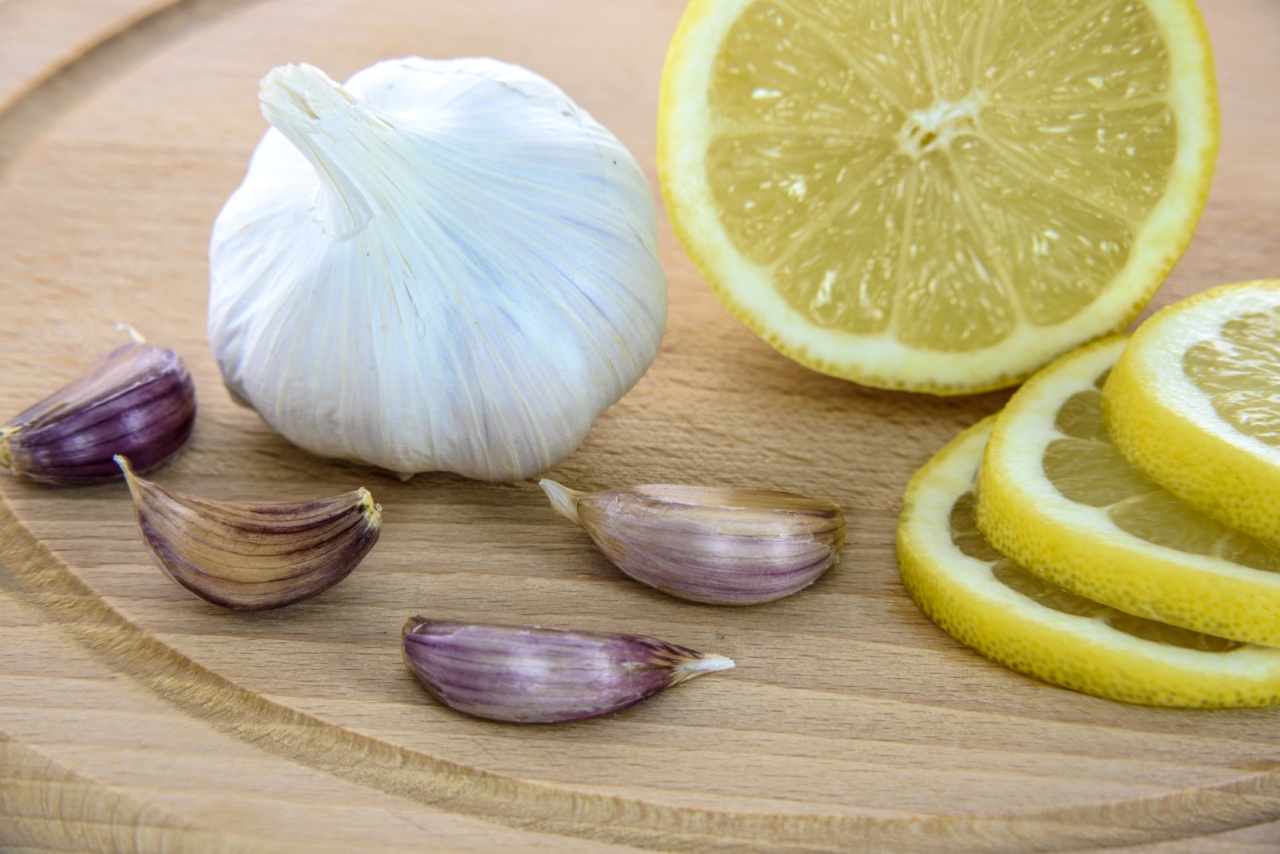Arthritis is a common condition that causes inflammation, pain, and stiffness in the joints. It can greatly affect a person’s quality of life and limit their ability to perform daily tasks.
While there is no cure for arthritis, managing the symptoms and slowing down its progression is possible. One effective way to achieve this is through diet. By including specific foods and avoiding others, individuals with arthritis can experience relief and promote their overall well-being.
The Role of Inflammation
Inflammation plays a significant role in the development and progression of arthritis. It occurs when the immune system mistakenly attacks the body’s own tissues, causing pain and swelling.
Certain foods have the ability to either promote or reduce inflammation in the body, making them important tools in managing arthritis symptoms.
Anti-inflammatory Foods
Incorporating anti-inflammatory foods into the diet is crucial for individuals with arthritis. These foods can help reduce pain, swelling, and stiffness in the joints. Some of the most beneficial anti-inflammatory foods include:.
1. Fatty Fish
Fatty fish such as salmon, mackerel, and sardines are rich in omega-3 fatty acids. These fatty acids have potent anti-inflammatory properties and can help reduce joint pain and stiffness.
Including fatty fish in your diet at least twice a week can have significant benefits for arthritis sufferers.
2. Turmeric
Turmeric is a spice commonly used in Indian cuisine that contains a compound called curcumin. Curcumin has powerful anti-inflammatory effects and can help relieve arthritis symptoms.
Adding turmeric to your meals or taking curcumin supplements can be beneficial.
3. Berries
Blueberries, strawberries, and cherries are rich in antioxidants and have been shown to reduce inflammation. These fruits also contain compounds that can help alleviate arthritis symptoms.
Including a variety of berries in your diet can have a positive impact on your overall health.
4. Broccoli
Broccoli is a cruciferous vegetable that contains a compound called sulforaphane. Sulforaphane has been shown to have anti-inflammatory properties and can help reduce the progression of arthritis.
Incorporating broccoli into your diet regularly can provide numerous health benefits.
5. Extra Virgin Olive Oil
Extra virgin olive oil is high in monounsaturated fats and contains a compound called oleocanthal, which has anti-inflammatory effects similar to ibuprofen.
Using extra virgin olive oil as your primary cooking oil and salad dressing can help combat inflammation and reduce arthritis symptoms.
6. Garlic
Garlic is not only a flavorful addition to meals but also has anti-inflammatory properties. It contains diallyl disulfide, a compound that may help reduce the enzymes responsible for joint damage in arthritis.
Including garlic in your cooking can provide both taste and health benefits.
7. Green Tea
Green tea is loaded with antioxidants that have anti-inflammatory effects. It also contains a compound called epigallocatechin-3-gallate (EGCG), which may help reduce inflammation and slow down cartilage destruction in arthritis.
Replacing sugary beverages with green tea can have a positive impact on your arthritis symptoms.
8. Nuts
Nuts, such as almonds, walnuts, and pistachios, are packed with nutrients and have been associated with reduced markers of inflammation.
Including a handful of nuts as a snack or adding them to salads and other dishes can be a simple way to enhance your diet and support joint health.
9. Whole Grains
Whole grains like brown rice, quinoa, and whole wheat bread are rich in fiber and have a lower glycemic index compared to refined grains. They can help maintain stable blood sugar levels and reduce inflammation in the body.
Replacing refined grains with whole grains can be beneficial for arthritis sufferers.
10. Ginger
Ginger is a root with potent anti-inflammatory properties. It can help reduce arthritis pain and improve joint function. Including fresh ginger in your cooking or consuming ginger tea can provide relief and promote better mobility.
Foods to Avoid
In addition to incorporating anti-inflammatory foods, individuals with arthritis should also avoid or limit foods that can trigger inflammation. Some of the foods to avoid include:.
1. Processed Foods
Processed foods like fast food, packaged snacks, and sugary treats often contain trans fats, refined grains, and high amounts of sodium. These ingredients can promote inflammation and worsen arthritis symptoms.
Opting for fresh, whole foods is a healthier choice.
2. Red Meat
Red meat is high in saturated fats and can contribute to inflammation in the body.
Limiting the consumption of red meat and choosing leaner protein sources like poultry, fish, or plant-based alternatives can have a positive impact on arthritis symptoms.
3. Dairy Products
Certain individuals with arthritis may be sensitive to dairy products, as they contain a protein called casein that can trigger inflammation in some people.
If you suspect dairy is exacerbating your symptoms, consider avoiding or reducing your intake to assess if it makes a difference.
4. Refined Sugar
High intake of refined sugars, commonly found in soda, candy, and baked goods, can promote inflammation and lead to weight gain. Excessive weight can put extra stress on the joints, worsening arthritis symptoms.
Choosing natural sweeteners or healthier alternatives is beneficial.
5. Alcohol
Alcohol is known to increase inflammation in the body and can exacerbate arthritis symptoms. Limiting or avoiding alcohol altogether can help manage inflammation and improve overall well-being.
Creating an Arthritis-Friendly Diet Plan
Designing an arthritis-friendly diet plan requires careful consideration of individual needs and preferences.
Consulting with a dietitian or healthcare professional can provide personalized guidance and support in creating a plan that is tailored to your specific situation. They can help ensure that you’re incorporating the right balance of nutrients and avoiding foods that may trigger inflammation.
Conclusion
While diet alone may not cure arthritis, it can play a significant role in managing symptoms and improving overall health.
Incorporating anti-inflammatory foods such as fatty fish, turmeric, berries, broccoli, garlic, and green tea can help reduce inflammation and alleviate arthritis symptoms. Avoiding processed foods, red meat, dairy products, refined sugar, and alcohol can also help minimize inflammation.
By embracing an arthritis-friendly diet, individuals can take proactive steps towards living a healthier, more comfortable, and fulfilling life.




























